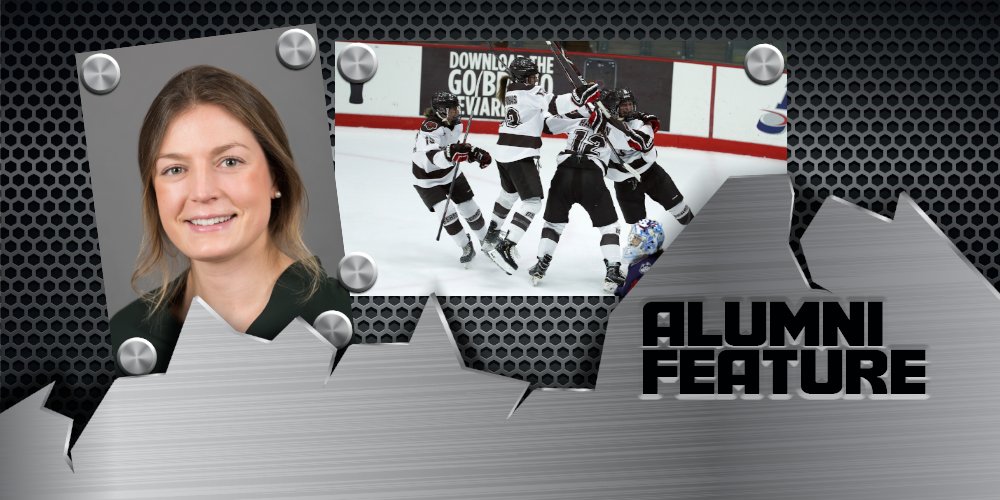This month’s alumni spotlight focuses on Abbigail Niewchas.
Before she went onto playing for Team Alberta or at the University of Brown, Abbigail Niewchas said her father, Wally, is the reason she got interested in hockey.
“I started playing hockey when I was three or four years old along with my older brother and younger sister,” Niewchas said. “Our dad played in the Western Hockey League with the Prince Albert Raiders and then at the University of Saskatchewan with the Huskies so he had us skating as soon as we could walk. I remember learning to skate at the Olympic Oval in Calgary and then my local rinks in Cochrane.”
Along with her dad being the reason she started playing the sport, she said that he was also her biggest influence to continue playing.
“My dad is the reason I started playing hockey and is the reason I stuck with it throughout college,” Niewchas said. “If you grew up in Cochrane, you probably experienced or heard about a Wally Niewchas bag skate and could recognize him when you saw him around the rink. He loves the game and is passionate about making players better on and off the ice, which is something I really admire about him.”
The traits of drive and determination resonated with Niewchas as she grew up playing for the Cochrane Rockies, playing on male teams for the first decade of her career, which she said helped her with the physical aspect of the game as she got older. She then suited up for the Rocky Mountain Raiders, winning a Provincial championship in 2012, before moving on to play with the Notre Dame Hounds and Edge Mountaineers. Niewchas also suited up for Team Alberta at various events such as the 2015 Canada Winter Games, helping the province to a bronze medal.
She earned a scholarship to the University of Brown where she played four seasons with the Bears, earning the honour of captain in her final year. Niewchas is now in her first year of medical school and is looking to become a doctor.
“Hockey has given me the opportunity to meet people from all over, travel to other countries and continents and network in communities I have no other connection with,” she said of her hockey journey. “Most importantly, however, it gave me the opportunity to truly understand what it means to be a good teammate and leader, which are qualities I hope will make me a good doctor.”


